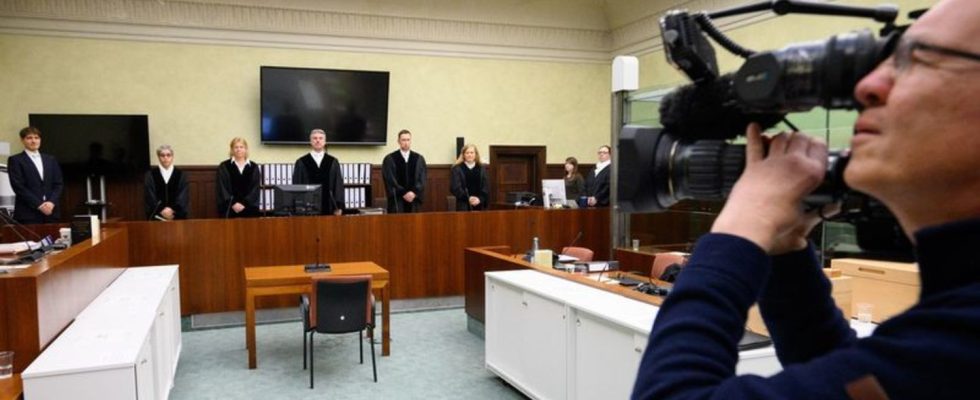Suspicion of Russian espionage
Defense attorney in BND trial makes allegations
The representatives of the prosecution, the presiding judge and other judges and court employees at the Berlin Chamber of Commerce. photo
© Bernd von Jutrczenka/dpa
An employee of the Federal Intelligence Service is said to have passed on state secrets to Russia with an accomplice. He is on trial in Berlin. But this is not yet the core of the accusation.
In the trial against a BND employee on suspicion of Russiaespionage, the defense expressed doubts about the investigators and the process. In addition, his client is being held in “torture-like solitary confinement,” said defense attorney Johannes Eisenberg on Wednesday before the Berlin Court of Appeal. The court and the federal prosecutor’s office rejected the allegations.
Eisenberg represents the 53-year-old Federal Intelligence Service employee Carsten L., who is charged together with the 32-year-old businessman Arthur E. After the start of the Ukraine war in 2022, they are said to have passed on secret information to the Russian secret service FSB and received hundreds of thousands of euros in agent wages. The Federal Prosecutor’s Office accuses them of treason in a particularly serious case. The two Germans are in custody.
Because they are said to have exchanged information in a letter that was forwarded through fellow prisoners, the court tightened the prison conditions. Carsten L. is now “alone and isolated” seven days a week, 24 hours a day, said Eisenberg. This is tantamount to torture. The Sixth Criminal Senate rejected this in a resolution. The restrictions are necessary.
Lawyer speaks of “file confusion”
Eisenberg also said that the Federal Prosecutor’s Office was continuing to investigate without knowledge of those involved in the process and was withholding information. File numbers were falsified. “So we’re dealing with counterfeiters,” Eisenberg said. Federal prosecutor Lars Malskies rejected this. Attorney Eisenberg also complained that the trial files were arranged in such a confusing way that it made the defense attorney’s work more difficult. It is a case of a “probably intentionally messed up file order”, a “file confusion”.
Actually, this day of the trial was about the letter exchanged in a conspiratorial manner – the so-called Kassiber. In it, the defendant L. is said to have urged the co-defendant E. to withdraw his statements. The court heard from two employees at the Moabit detention center about how the letter was discovered and attributed to the defendants. The taking of evidence is scheduled to continue on Thursday.

